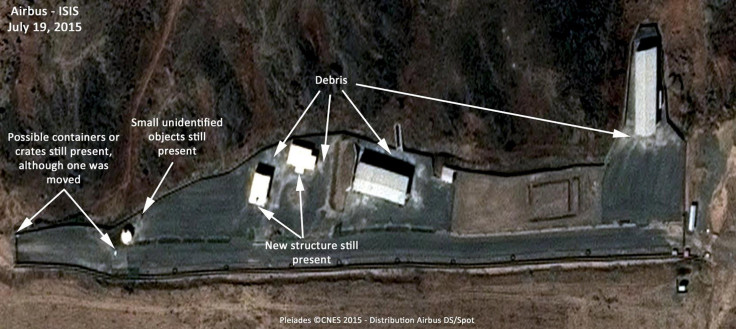Iran Rejects Accusations About Military Site As 'Lies'

DUBAI (Reuters) - Iran's foreign minister said on Saturday that accusations about activity at its Parchin military site were "lies" spread by opponents of its landmark nuclear deal with world powers clinched last month.
A prominent U.S. think-tank on Friday questioned Tehran's explanation for activity at its Parchin military site visible in satellite imagery, saying the movement of vehicles did not appear related to road work.
"We said that the activities in Parchin are related to road construction," Foreign Minister Mohammad Javad Zarif was quoted on Saturday as saying by the IRNA state news agency.
"They (opponents of the deal) have spread these lies before. Their goal is to damage the agreement," he added.
Parchin is a site to which the U.N. nuclear watchdog, the International Atomic Energy Agency (IAEA), requested access as part of the July 14 nuclear accord between Iran and six major powers, which include the United States.
The U.S.-based Institute for Science and International Security suggested Iran could be engaged in cleanup work before IAEA inspectors arrive at the site.
The speaker of Iran's parliament also dismissed the think-tank's suggestions.
"This is an artificial dispute to distract the world. There are some movements at Parchin but trying to expand those activities to the military facility and making a fuss about it is like some fairy tale,” Ali Larijani was quoted on Saturday by the Fars news agency as saying.
"Israelis are not happy about the deal and they will do anything to stop it," he added.
Israeli Prime Minister Benjamin Netanyahu has been pushing U.S. lawmakers to oppose the nuclear agreement, which he considers a threat to his country's survival.
Some pro-Israel groups have been spending millions of dollars on an advertising campaign to persuade members of the U.S. Congress to reject the deal in the autumn.
© Copyright Thomson Reuters {{Year}}. All rights reserved.




















